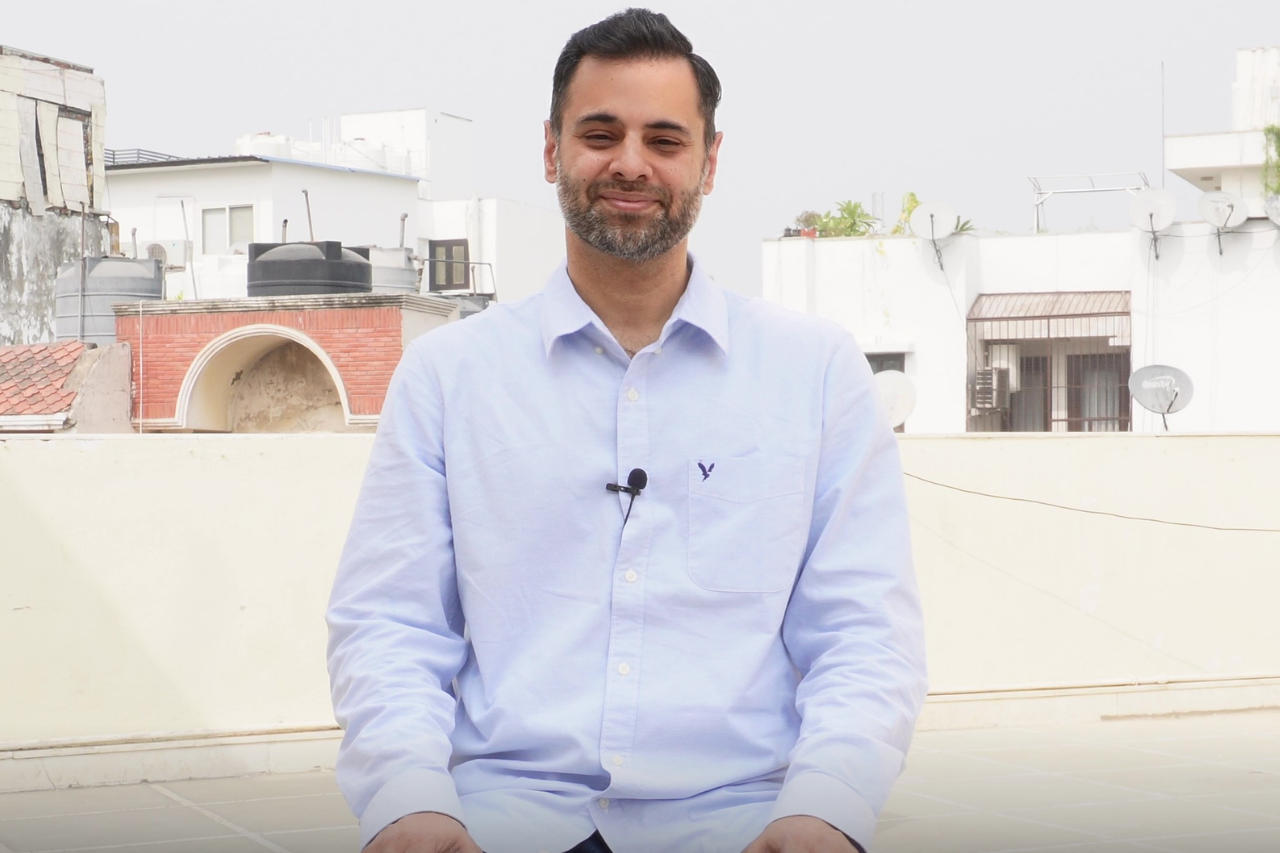The concept of non-doership is that things happen, but there is no individual doer of any action that operates in daily living with complete personal volition. Now this idea is unsettling for most people and is often misunderstood. It is not an implication that you have to be a certain way.
The misconception is that it breeds sloth and passivity. On the contrary, it brings out intelligent action – active, spontaneous, and highly creative. Non-doership brings about a profound transformation in our attitude towards life. With this understanding, we begin to live in the moment rather than in the dead past or an imaginary future.
There is no centered agency that is in charge of things. Although, the sensation of centeredness is strong, and it makes one believe that there is a captain on the ship that steers it. All the steering happens due to past conditioning, including all the actions and reactions one experiences.
The “doer” mind is the involved mind as opposed to the non-doer mind, which is the whole mind that represents the totality of all functioning. The whole mind, or the universal mind, is non-discriminating. It is pure intelligence that manifests in phenomenality as spontaneous action. An action that is not born out of a conditioned reaction or thought. It is the pure awareness, that is.
Therefore, non-doership means there is no attachment to the outcome. The action devoid of attachment represents the functioning of impersonal and universal creative energy. The energy that has no agenda and no purpose. The one energy that simply allows spontaneous action in the moment depending on the current situation.
This energy is executing action all time. If we are aware enough, we can see it in action. It does not arise out of programmed thinking, which is actually a waste of energy. It is what I call the engaged mind or the working mind, as opposed to the thinking mind, which remains concerned with the outcome.
The thinking or “me” mind comes after the action claiming ownership. I did this. It is my work. It sees things as doing as opposed to happening. Attachment to outcome creates suffering. When I think I’m the doer, I build a perception about myself based on the outcome of my work. When I succeed, I create pride and arrogance. When I fail, I create blame, shame, and guilt.
Conversely, the engaged mind remains unconcerned with the outcome, allowing the highest creative expression. It is only concerned about the step to be taken in the moment. It allows the flow state – completely absorbed in the work without any concern about the outcome. It is the focused mind.
A majority of us, however, struggle with the thinking mind. We procrastinate because there is an undercurrent of fear of how the work will be perceived by others. Therefore, the thinking mind comes up with rationalizations, “What is the point of doing this?” “I know someone who tried and failed,” “First, let me acquire knowledge, and then I will write my book,” “I don’t have time to do this,” “I have so many responsibilities,” and so on.
The above rationalizations are only diversions for immediacy that is now. It is natural to have such thoughts, but when they become our dominant reality, they hold us back. Every time you believe in a thought, you strengthen it. I’m not suggesting that you have to push through these thoughts. Simply examine them and see them for what they are.
If you suppress thoughts, they grow stronger. With acceptance, they become weak. The acceptance is that there are thoughts but no thinker. There is observation, but no observer. Or the observer is the observation. The more you see the unreality of the thinking mind, the weaker it becomes.
The action that comes out of self-centered thinking breeds passivity. It contains tamasic energy or sloth. Such action is continuity of the self (the sense of personal identification). Whereas, spontaneous action has sattvic energy or harmony. It does not arise out of thinking, identified with a future outcome. Such an action is an expression of the highest creativity of infinite intelligence.
An action born out of thought has no originality in it. It’s a habitual reaction. The thought is never free; therefore, the action that comes out of it is also not free (it has consequences). Trapped in compulsive thinking, we react to even the most ordinary situations in life. Thinking unconsciously follows a fixed pattern or conformation to a pre-existing idea. Therefore, it lacks novelty, and the outcome is usually predictable.
The unconscious action, which follows an unconscious thought, further propagates unconscious thinking. In other words, it propagates and expands the sense of separate existence, which brings suffering. For example, when I habitually react to problems with aggression, not understanding the real nature of the problem, I berate myself for being unkind.
First, I did not look into the nature of the challenge or problem, then I reacted out of ignorance, and after that, I create horror stories in my mind and blame myself for reacting the way I did. It is all a continuation of the same movement of the thinking mind – the regret in the moment becomes guilt that continues over time as an unpleasant sensation.
A reaction is not necessarily a bad thing every time. Some situations warrant a reaction. And whether you react or respond, in a given situation, depends on the past conditioning and the gravity of the present situation. You do not choose to react. The reaction happens. With this renewed understanding, there’s no guilt or shame for one’s actions.
It’s not about escaping responsibility because the understanding is that, no individual is the doer of any action, and receiver of consequences; nevertheless, the consequences do happen. The programmed entity that operates in phenomenality is subject to responsibility by society and law. Therefore, the concept of non-doership is not a free pass to escape responsibility for one’s actions.
The ultimate understanding is that things happen as per cosmic law – a law that the three-dimensional beings living in phenomenality cannot understand intellectually. We cannot know the basis on which things happen. Consciousness is the source and substance of all realities: waking, dreaming, and deep sleep. Recognition of that frees the individual from the grips of the doer-mind.

